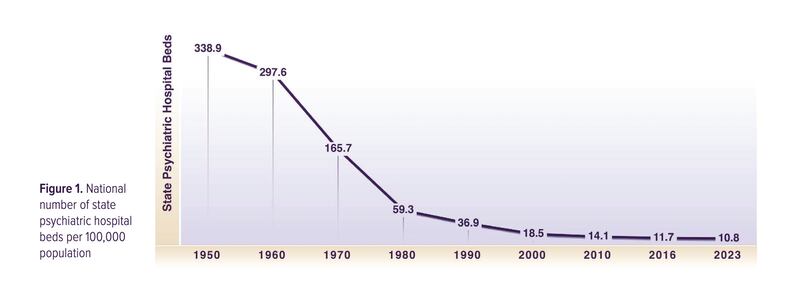A new study released Jan. 24 by the nonprofit Arlington, Va.-based Treatment Advocacy Center provides national context for Oregon’s shortage of beds for people who have been civilly committed because they are a danger to themselves or others.
Oregon offers fewer beds per capita to such patients than all but three states (Arkansas, Maryland and Missouri, all of which offer none).
Oregon has fewer than a quarter of the average number of beds in other states. That’s because virtually all of the state’s psychiatric beds are now allocated to forensic patients, who have either been found guilty of a crime but for insanity or deemed unable to assist in their own defense. In Oregon, civilly committed patients occupy just 7% of the state’s psychiatric beds, a far lower share than the national average.
The reality is even worse because it’s harder to get court approval for a civil commitment in Oregon than in most states, so many people who might be committed elsewhere have not met the legal threshold here.
The new report cites 2023 research by Dr. Joe Bloom, a professor emeritus of psychiatry at Oregon Health & Science University, that found the state’s failure to provide beds for civilly committed patients led to a worsening of their condition. “Neglecting civil commitment,” Bloom found, “may well have contributed to the competency to stand trial crisis in Oregon.”
The report comes at a time when the number of psychiatric beds per capita in the U.S. has reached a new low.


